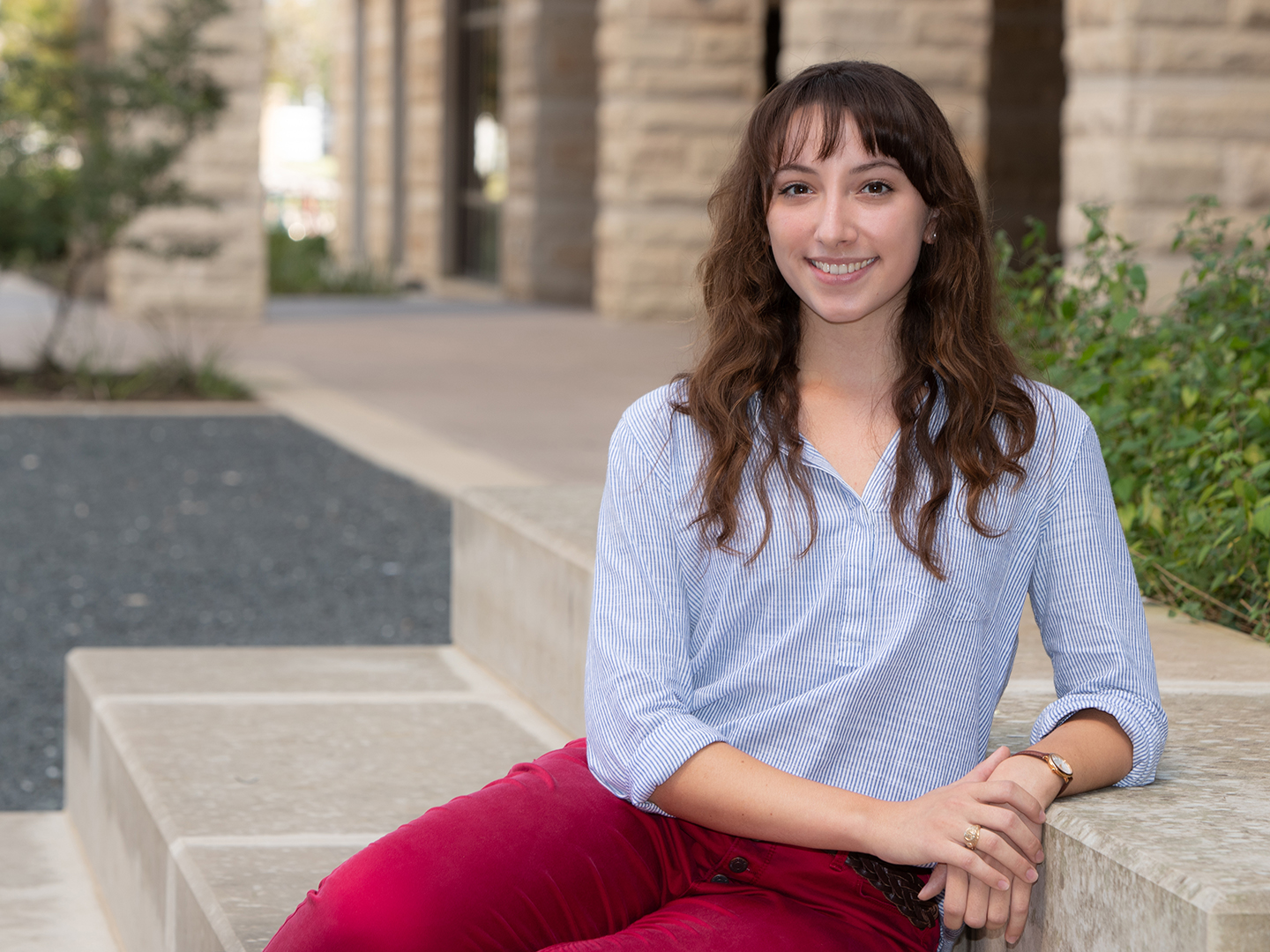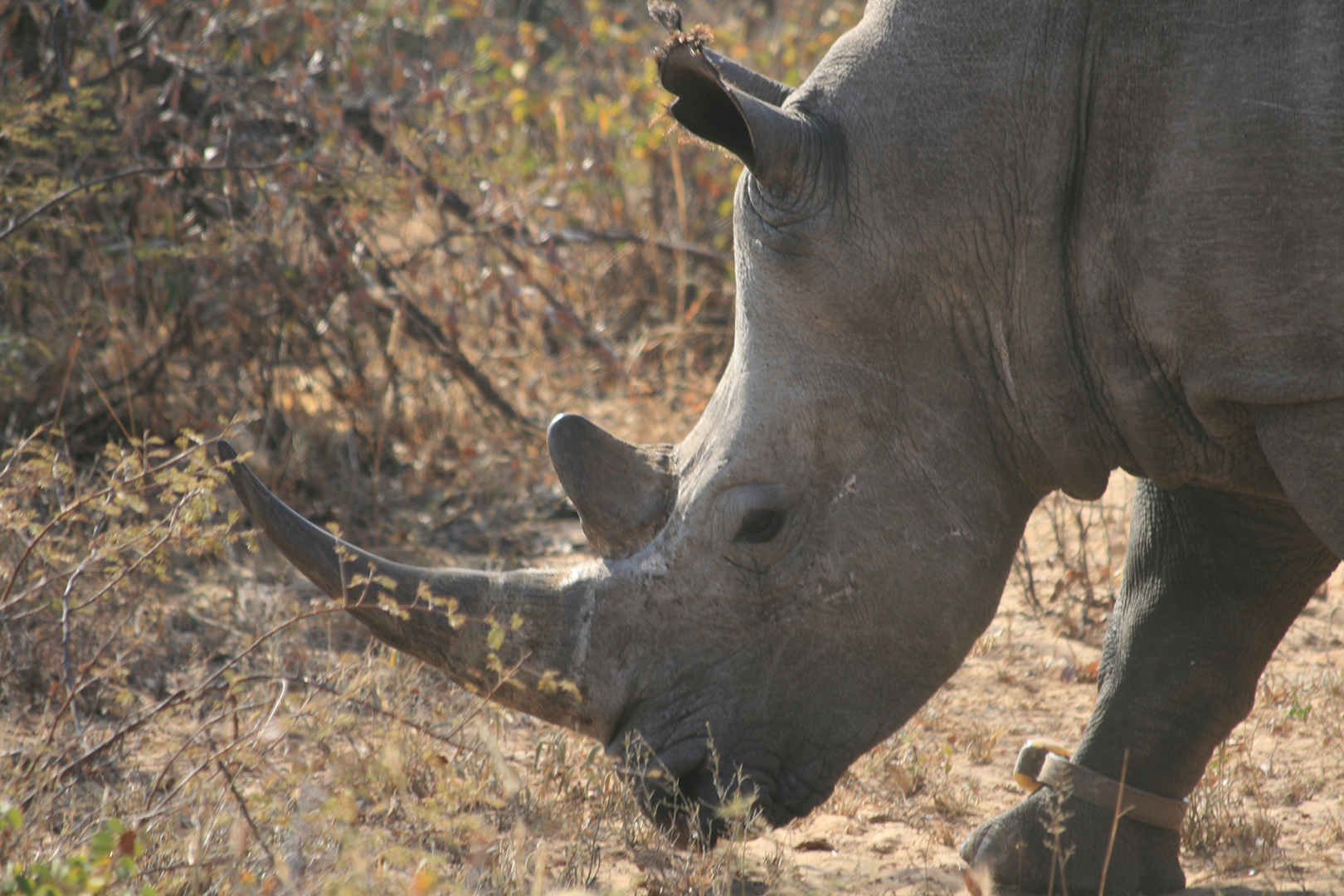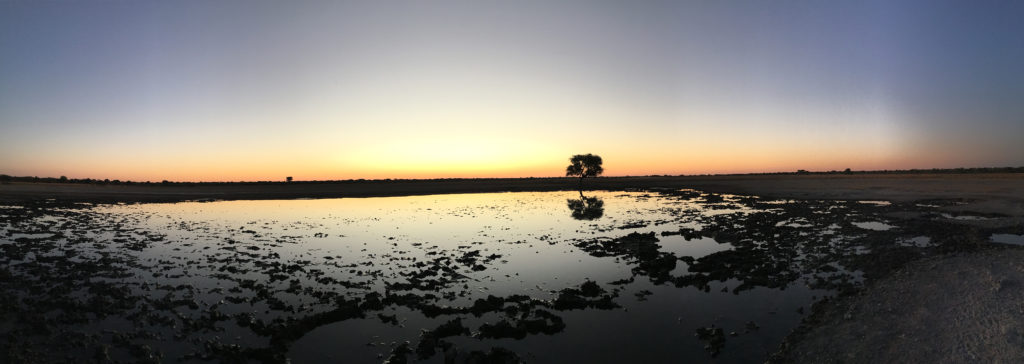From Africa To Texas: A Holistic View Of Wildlife Conservation
Story by Megan Myers, CVMBS Communications
“Nothing prepared me for the first time we were riding in the back of a truck and they pulled up in a field and said, ‘All right, the animal is down; go in and get it,’” said Emma Haschke, reflecting on her study abroad trip to Africa. “We would just hop off of the truck and take off running in the middle of the African bush to get our hands on the animals. It was absolutely incredible.”

For three weeks in the summer of 2019, the senior biomedical sciences major got hands-on experience with several species during a trip to South Africa led by Texas A&M College of Veterinary Medicine & Biomedical Sciences (CVMBS) faculty members Drs. James Derr and Walt Cook.
This trip inspired a passion for wildlife medicine and conservation that shaped her career goals in ways she never imagined.
While Haschke has always had a love for wild animals and has long dreamed of becoming a veterinarian, her study abroad provided a new perspective on how veterinary medicine can play a key role in environmental health.
“I’ve been interested in wildlife from a young age,” Haschke said. “My family has property out in the Hill Country, where we manage white-tailed deer, blackbuck antelope, and feral hogs. I’ve always been familiar with Texas-specific wildlife, but I definitely had no idea how interested I was in African exotic animals until I went on that trip. That’s what really sparked my passion and showed me how hands-on a veterinarian’s role could be with conservation.”
For the majority of the trip, the group stayed in South Africa on a ranch owned by CVMBS alumnus Dr. Jim Myers ’62; they then traveled to Botswana to gain more species-specific experience at a rhino sanctuary.
“My favorite day of the entire trip was probably the day we got to work with rhinos in Botswana because the veterinarian we worked with was so knowledgeable and kind; he really took the time to explain the physiology and the reasons behind the ways we were interacting with the animals,” Haschke said.
“He also took us on a sunset game drive around Botswana that was gorgeous and so surreal,” she said. “We were standing out there watching the sun set and there were rhinos walking by, herds of zebras and impala, and it looked like it was straight out of ‘The Lion King.’ It was magnificent.”
One aspect of the trip that especially sparked Haschke’s interest was learning about the daily interactions between people and animals and the impact wildlife has on local communities and ecosystems.
“For example, we learned about some exotic species there that are actually considered pests to locals, like baboons,” she said. “They’re a really big problem for a lot of farmers, especially in the timber industry, which is something that I had never even heard about before. Baboons are a very invasive species, and they’re comparable to feral hogs here in Texas.”
Continuing Her Education At Home

After she returned home, Haschke was eager to continue learning about African wildlife and the benefits of a One Health viewpoint of conservation that focuses on animal, human, and environmental health.
With the encouragement of the CVMBS’ director of International Programs Dr. Linda Logan, she began brainstorming a research project that would allow her to share her new knowledge.
“I wanted to highlight a more holistic approach to conservation, rather than just focusing on the biology of the species,” Haschke said. “There are people directly interacting with these wildlife species, and it’s really important to get them involved with protecting the wildlife too.”
She focused her project on a community-based approach to wildlife conservation and ecological health, specifically as it relates to the rhino horn trade and human-elephant conflict, and presented her research titled “One Health Issues of African Wildlife” during a virtual Zoom presentation on Aug. 18.
“It was really exciting to have the opportunity to have an audience to engage with and we even had a great Q&A session at the end where some people brought up some great ideas and perspectives that I hadn’t even thought about before,” she said. “It was a really great end to the project and wrapped a nice bow on that whole experience.”
A Love For Wildlife
Though her presentation is complete, Haschke has no plans to stop learning about wildlife at home and abroad.
After earning her Doctor of Veterinary Medicine, she hopes to begin a career as a wildlife veterinarian in Texas, where more and more land owners are interested in owning exotic animals, including many African species.
“It’s important that there are veterinarians equipped for handling new species and that they’re familiar with them and the issues that come along with them,” Haschke said. “They can’t just treat each individual animal; they also need to look at what it looks like to have all of these new species here in Texas.”
Haschke’s love for Texas wildlife is partly due to her great uncle Dr. Robert “Bob” Dittmar ‘79, who served as the state wildlife veterinarian until he tragically passed away in a helicopter accident in early August 2020.
“He was definitely a man of few words, but whenever I did get the chance to learn from him, he was just incredibly knowledgeable and a very kind teacher,” Haschke said. “When I went to Africa, that’s when he started really opening up about his work with Texas wildlife, including the bighorn sheep in West Texas, and the dynamics between invasive species and the native species that need our protection.
“In addition to giving me my foot in the door with wildlife medicine, my uncle also introduced me to a lot of really wonderful people and mentors at Texas A&M,” she said. “He was always looking out for me and always making sure that I had good people on my side.”
As Haschke finishes up her undergraduate education, she is excited to begin the next chapter of her life and pursue her love for wildlife medicine and conservation.
“I recently took a course called ‘Agents of Change’ that emphasized how we can be very important in creating change in our communities and then even on a bigger societal level,” Haschke said. “That was a big inspiration behind why I’ve really been drawn to working with wildlife, and I’ve found a great personal calling to help out with conservation.”

###
For more information about the Texas A&M College of Veterinary Medicine & Biomedical Sciences, please visit our website at vetmed.tamu.edu or join us on Facebook, Instagram, and Twitter.
Contact Information: Jennifer Gauntt, Director of CVMBS Communications, Texas A&M College of Veterinary Medicine & Biomedical Sciences; jgauntt@cvm.tamu.edu; 979-862-4216


